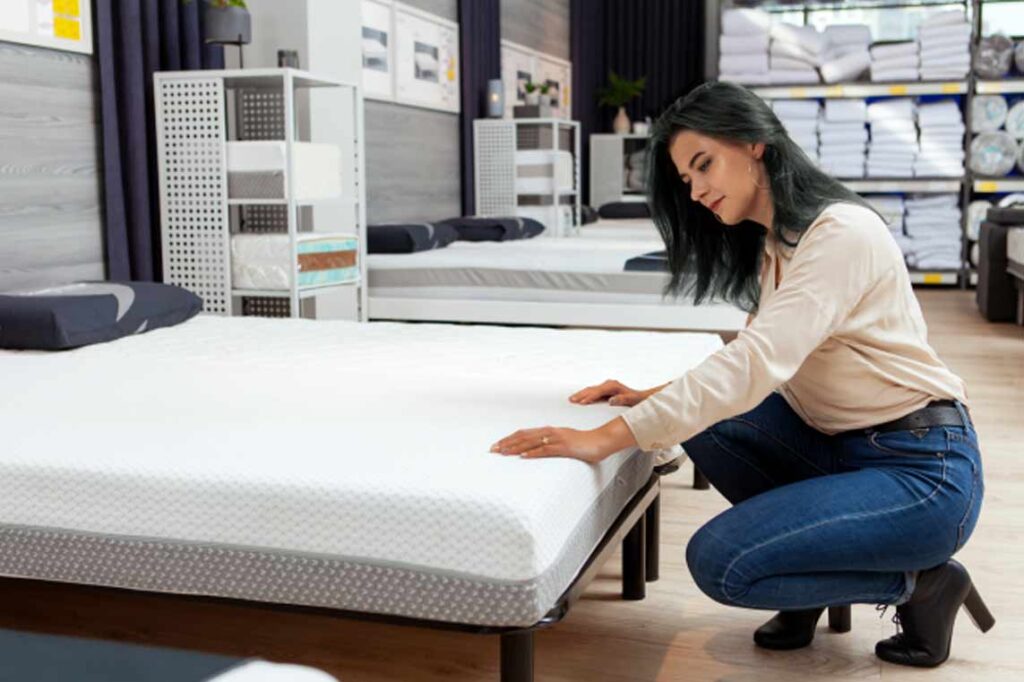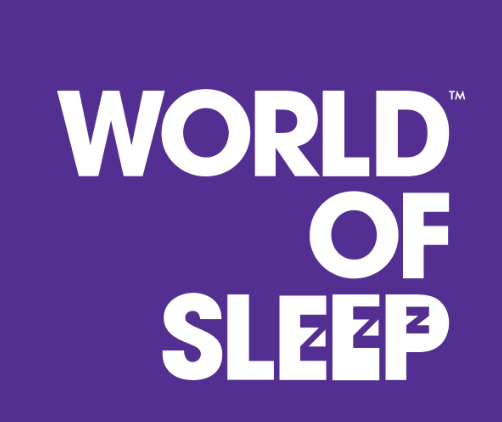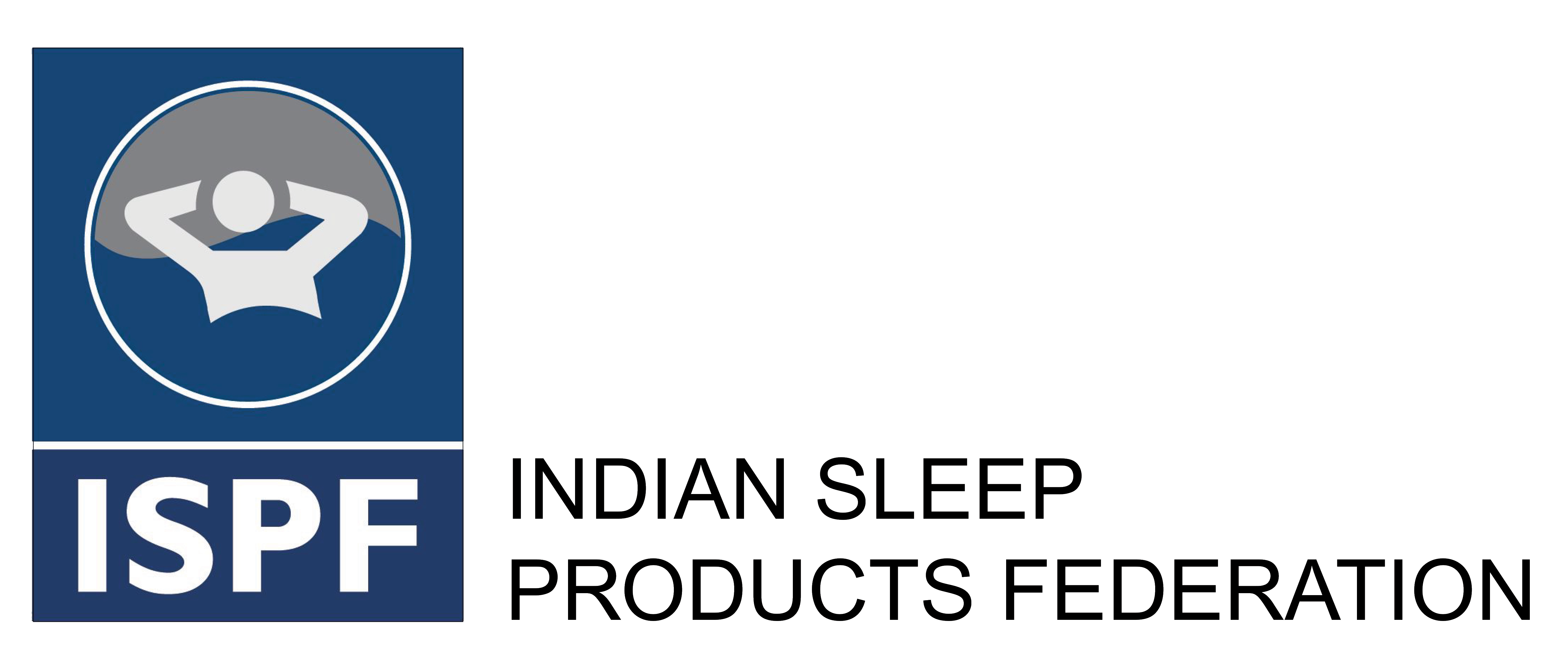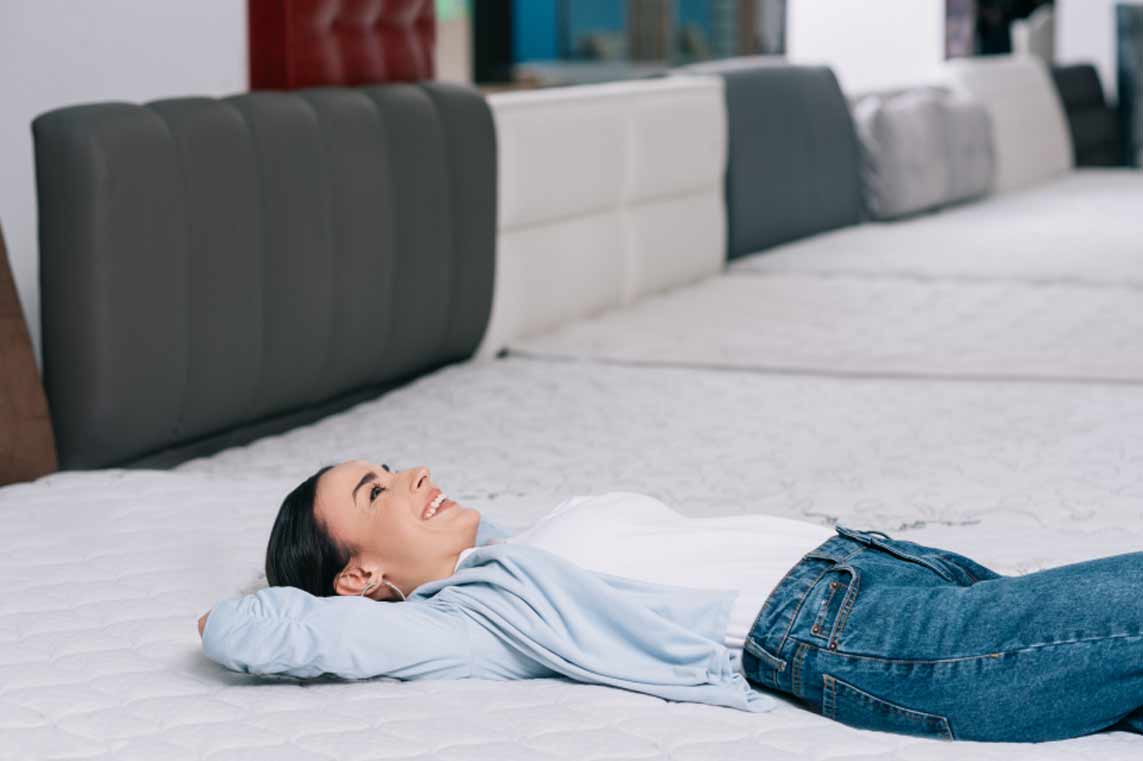As sleep becomes increasingly recognised as a pillar of holistic wellness, customers are no longer satisfied with the generic and mass-produced mattresses and the concept of ‘one- size-fits-all’ has faded away. In fact, customers now want personalised sleep solutions that meet their individual health profiles, body types, lifestyle preferences and comfort expectations among other things. This shift is ushering in a new era for the mattress industry i.e., the rise of customisable sleep solutions.
Pankaj Gupta, Director, RP Foam Home Pvt Ltd, says, “Change is the only constant and this is true for the mattress industry as well. The present change that is sweeping the mattress industry is need for more customised sleep solutions. Keeping in line with this, a lot of R&D is taken up by the mattress manufacturers to offer maximum comfort to the customers through unique and personalised solutions.” In fact, many mattress brands are increasingly leveraging this growing demand for attaining deeper customer engagement, increased margins, reduced returns and stronger brand differentiation.
Factors behind the growth of personalised sleep solution
The demand for customisable sleep solutions is rising due to both lifestyle as well as technological shifts. Also, consumers today are more informed and wellness-oriented; hence they are demanding products that reflect their individual needs. Dinesh Kejariwal, Proprietor, Restin Industries, notes, “Every person is different and so are their sleeping preferences, body weight, health and height. So, mattress choices also differ. That said, husband might want a firm mattress or may be a side sleeper but the wife may want a soft mattress and may be a back sleeper. So, even two people sleeping on the same bed may have different mattress needs. In simple words, customers these days are becoming extremely choosy and from one mattress, they want different results. This is further intensifying the need for customisation in the mattress industry. In addition, India is a diverse country where each region has a different temperature, so some states with hot and humid temperatures need mattresses that come with a cooling technology and regions having cold temperatures need warmer mattresses. These factors are also supporting the growth of customisation in the mattress segment.”
Well, let’s take a detailed look at the few key drivers that are driving customisation in the mattress segment.
- Rising sleep awareness: Gradually, urban Indian consumers are waking up to the science of sleep and they are recognising a strong correlation between sleep quality and long-term health results. So, they are searching for mattress products that go beyond basic comfort and actively contribute to their wellness goals like posture correction, pain relief and sleep cycle optimisation. Gantavya Jain, Head Manager, Dreamcare Enterprises, says, “These days, customers believe in precaution before caution, so they want customised mattress solutions that give a boost to their health and keep them away from issues like back and neck pain.”
- Technology integration in daily life: From smart watches to voice-controlled lighting, technology has become a basic part of modern lifestyles. Naturally, now a need for technology is felt in the bedroom too. So, there is an increased desire from the customers’ end for mattresses that respond dynamically through tracking sleep metrics or syncing with home automation systems. That said, the rise of IoT and AI-driven sleep platforms is also encouraging the mattress brands to embrace digitisation and data-backed design.
- Elevated comfort expectations: Today’s mattress buyers want mattresses to offer not only softness but more like they want a custom comfort experience that can address all their pain points and mattress brands are also realising this. So, whether its temperature regulation for hot sleepers, motion isolation for couples or dual-firmness options for many, brands are delivering more comfort to their customers.
- Rising medical and lifestyle specific needs: An increase in sleep-related problems is also propelling the need for customisation in the mattress segment. In fact, mattresses are increasingly seen as a solution to specialised health and lifestyle requirements. For example, conditions such as insomnia, pregnancy discomfort, aging-related joint pain and sleep disruption due to stressful professions (like police or healthcare workers) require different sleep solutions and there can be no one mattress that can address it all. In this regard, Jain notes, “Different age groups demand different mattresses. Elderly people demand different mattress as against the young population or newly married couples. Further, people who work in the night and sleep a little less have a different mattress requirement as against the people who get to sleep for more number of hours.” So, this varying demand is also propelling innovation and due to this, brands are designing as well as marketing specialised solutions for different sectors.
Artificial intelligence driven sleep solutions are set to transform the user experience in the coming years.
Overall, it would not be wrong to say that these days, customers want their mattresses to be as responsive as their smartphones and hence, the mattress segment is seeing a lot of customisation.

Levels of customisation in sleep solutions: From size to smart tech
The spectrum of customisation today spans a variety of dimensions i.e., from basic physical specifications to highly personalised technological features. Here is a look at these different layers of customisation.
- Size customisation: Earlier mattress sizes were limited to standard configurations like single, queen, king etc. However, now there is an increase in the demand for non-standard or made-to-order sizes especially in the luxury and hospitality segments. So, the mattress brands are also offering customised mattresses based on size specified the customers. Here, Sleepwell’s MyMattress Program deserves a mention. This flagship program of the company allows customers to choose non-standard sizes in addition to customised support layers. This initiative has helped the company in increasing the average order value, demonstrating that flexibility in size can lead to better business and brand perception.
- Customisation as per body type and sleeping style: These days, customers are demanding personalisation based ontheir physique and sleep posture as well. In lieu of this, mattress brands are using tools like pressure mapping(which helps to design mattresses that offer optimal lumbar support for different body shapes), BMI profiling and sleep position analysis to offer precise support. This level of customisation ensures not just comfort but better spinal alignment, reduced pain and enhanced sleep quality. Manufacturers using this strategy are reporting improved return rates and stronger customer retention. Here, we could consider the example of The Sleep Company’s SmartGRID technology which provides targeted support based on body pressure zones and for that their digital mattress selector asks consumers about weight, sleep position and pain points. This has helped the company to reduce returns drastically.
- Customisation based on firmness: Customers are demanding customisation on the firmness front too. So, a variety of firmness options like soft, medium, firm or even dual-firmness models (i.e., firmer on one side, softer on the other) are being offered by the mattress manufacturers. Here, it is to be noted that some mattress brands are also offering mattresses with multiple zones i.e., softer under shoulders and firmer under hips, thereby offering anatomical support.
Personalised sleep solutions as per the occupation and condition
Beyond general personalisation, there’s growing interest in mattresses designed specifically for certain population. This is because customisation is believed to be not just about luxury but about functionality for specific needs too. Let’s understand customisation based on the occupation and different conditions in detail.
- Police and military personnel: Professionals in high-stress environments like police or military often struggle with back pain, irregular sleep and fatigue. They require enhanced recovery, motion isolation and pressure relief. So, mattress manufacturers are coming up with customised mattresses that offer firm support, muscle-soothing layers (like memory foam or latex) and high durability for prolonged usage. In fact, several Indian paramilitary housing boards have partnered with regional mattress suppliers for bulk purchases of orthopedic coir-foam hybrids.
- Hospitals and medical facilities: Healthcare settings demand mattresses with hygiene, mobility and clinical-grade support. They require anti-bedsore properties, antimicrobial surfaces and patient repositioning support. Hence, many mattress brands are offering customised mattresses with medical-grade PU foams and washable covers and air or fluid pressure alternation systems. Here the case study of Sheela Foam (SleepX Med Series) can be considered. SleepX’s Med Series offers mattresses with anti-microbial covers, pressure relief zones and waterproofing.
- Athletes and sportspersons: This category requires mattresses that can help in muscle recovery, deep sleep and spinal alignment. Given that, increasingly mattress manufacturers are coming up with responsive foams, cooling gels, ergonomic zoning and smart analytics for sleep monitoring. Here, Duroflex’s Duropedic Pro Athletica deserves a mention. This mattress is developed in collaboration with physiotherapists and sports doctors. It uses high-resilience foam and cooling gels along with deep support zones.
- Pregnant women: Pregnancy brings rapid body changes and gives rise to the need for adaptable comfort. Further, customers in this category need lumbar support, side-sleeping aid and breathability. Thus, the mattress companies are continually innovating and providing mattresses that offer soft edge support, contoured belly zones and hypoallergenic materials. For instance, companies such as Wakefit and Sleepy Cat have developed pregnancy pillows and mattresses that can support belly weight and side-sleeping and address lower back pain issues. What more? Brands offering maternity-focused solutions also have the opportunity to cross-sell to post-natal or baby mattress categories.
- Senior citizens: According to a survey by India Sleep Forum in 2024, more than 62 per cent of seniors in India complained about poor sleep due to improper mattress support.That said, ageing population requires mattresses that aid mobility, provide pain relief, promote circulation and fall protection. In order to cater to this segment, many manufacturers have started to offer customised mattresses that provide mid-firm comfort, edge support and elevated heights for accessibility. For example, brands like Repose, MM Foam are offering elevated edge support, mid-firm latex beds and anti-skid designs for this demographic.
- Babies and toddlers: Children need support for growing bones and a safe and firm yet soft sleep surface. They also need breathability and toxin-free materials. So, these days, manufacturers are offering natural latex and organic cotton covers and anti-suffocation designs so as to cater to this segment. In fact, many prominent brands are offering mattresses made with organic coconut coir and breathable mesh.
The rise of Smart mattresses for adaptive comfort
After going through various levels of customisation as stated above, let’s take a look at Smart mattresses that represent the pinnacle of sleep personalisation. In fact, AI-based sleep solutions are poised to revolutionise the user experience in the future. With sensors, apps and machine learning, these mattresses can easily adapt to the condition and needs of the sleeper. They can even adjust the firmness and temperature throughout the night. Have a look at how they can ensure maximum comfort:
- Automatic firmness adjustment: AI-driven mattresses sense movement, pressure points and body temperature and can then adjust support during the whole night.
- Sleep monitoring: Embedded sensors track sleeping cycles, heart rate and breathing. This information is then forwarded to an app for sleep improvement recommendations.
- Climate control: There are dual-zone heating and cooling in some models which addresses personal needs without compromising on the shared bed experiences.
Smart mattresses especially appeal to the tech-savvy and health-conscious consumers, making it a profitable niche for high-end mattress companies. Although the Smart mattress industry is still in its early stages in India, the market is accelerating rapidly in the other countries. For example, Eight Sleep’s (USA) Pod Pro mattress, equipped with AI and biometric sensors, can cool/heat each side of the bed, monitor heart rate and provide real-time sleep analysis.
Benefits of offering customisation in the mattress segment
Customisation has proven to be a powerful growth strategy for the mattress manufacturers as well as the retailers, offering distinct advantages across pricing, operations and market expansion. We look at how the brands as well as the retailers stand to gain.
- Higher margins: Customised mattresses are seen as premium and problem-solving products tailored to individual needs. This allows brands to charge a little more per unit as compared to the standard mattresses. Given that, buyers are also more willing to pay extra for features like smart tech, orthopedic support or personalised firmness. With this and better margins, companies can enhance profitability without significantly raising costs.
- Lower return rates: Standard mattresses often fail to meet specific customer demands. This is especially true for users with medical or ergonomic needs. On the other hand, custom solutions, guided by inputs like body weight, sleep posture and pressure points, lead to better satisfaction. This can result in a fall in the return rate. This can also reduce reverse logistics costs and enhances brand credibility.
- Stronger retailer bonds: These days, retail stores use modern technology tools like guided selling apps, digital mattress selectors etc., to improve in-store conversions by matching buyers with the right product based on real data. Hence, retailers benefit from easier upselling opportunities (e.g., custom pillows, toppers or adjustable frames). Further, as retailers close more sales with fewer objections, their loyalty to the brand increases, resulting in stronger distribution partnerships.
- Enables new market entry: By offering personalisation, the mattress manufacturers can enter non-traditional mattress markets with specialised sleep needs like hospitals, sports institutes, hospitality and defence and emergency services segment. It is generally seen that these segments value performance over price, making them attractive and high-margin targets for B2B sales.

Challenges of customisation: Operational considerations
While the benefits are clear, customisation demands rethinking of operations. So, B2B brands must invest in:
- Digital sales configurators which are tools that help retailers and customers design mattresses in real-time.
- Training and support so as to ensure that the retail partners can guide the customers well in selecting the right features.
- Data integration to use customer insights to fine-tune offerings and forecast trends
A growing number of Indian brands have already begun integrating these capabilities and are seeing positive results.
The future of custom sleep
In future, the mattress will not just support the sleeper; rather it will understand them and their needs. Also in the times to come, mattresses will integrate seamlessly with wellness ecosystems. They will sync with smartwatches and adjust in real-time to stress levels. They may even warn users about sleep disorders. In fact, as AI evolves over the period of time and material science advances, the level of personalisation will far exceed what we have today.
Industry in 5 Minutes
The rise of customisable sleep solutions reflect a deeper shift in what consumers expect. Today, they are redefining how people and brands think about the notion of rest. Mattresses are no longer viewed as static commodities; instead they are seen as wellness platforms that are dynamic and adaptive. For B2B companies, this provides
a great opportunity to move away from price wars and deliver unique value. So, whether it’s a temperature-regulating mattress for a sportsman or an antimicrobial bed for a hospital room, each customised solution can help the mattress brands to build greater trust, improve customer retention and sustain long-term growth.
If we talk about India particularly, then the organised Indian mattress market which commands roughly 40 per cent of total national sales is witnessing rapid growth in the custom and health-oriented segment. As the Indian market grows further and sleep becomes an important part of life, brands that respond wisely and with care are expected to lead the next phase of the mattress industry.
- Invest in Configurator Technology: Have a smart mattress selector quiz or in-store touch panel that provides guidance to buyers based on sleep position, body weight and pain areas.
- Train retail partners on selling personalisation: Develop sales training modules that teach distributors and retailers how to convey the value of customisation.
- Bundle sleep accessories with custom mattresses: Provide customised packages like orthopaedic pillows, pregnancy wedges or cooling mattress covers depending on the chosen mattress type.
- Target institutional customers with specialised lines: Prepare catalogues with specific products and technical literature.
- Co-brand with health and lifestyle influencers: Collaborate with the sleep trainers, physiotherapists or celebrity athletes to co-brand customised mattress lines.
- Integrate sustainability into personalisation: Offer environmentally friendly alternatives when customising the mattress.
CEO Corner
Dinesh Kejariwal, Proprietor, Restin Industries
The customers these days are becoming extremely choosy and from one mattress, they want different results. This is further intensifying the need for customisation in the mattress industry.


